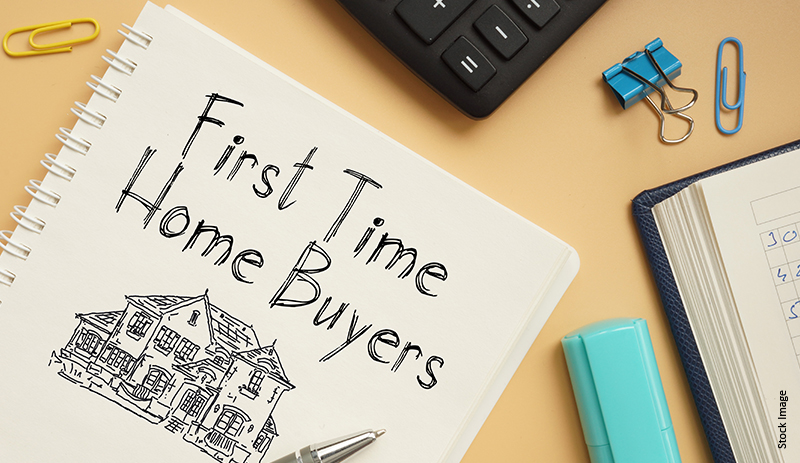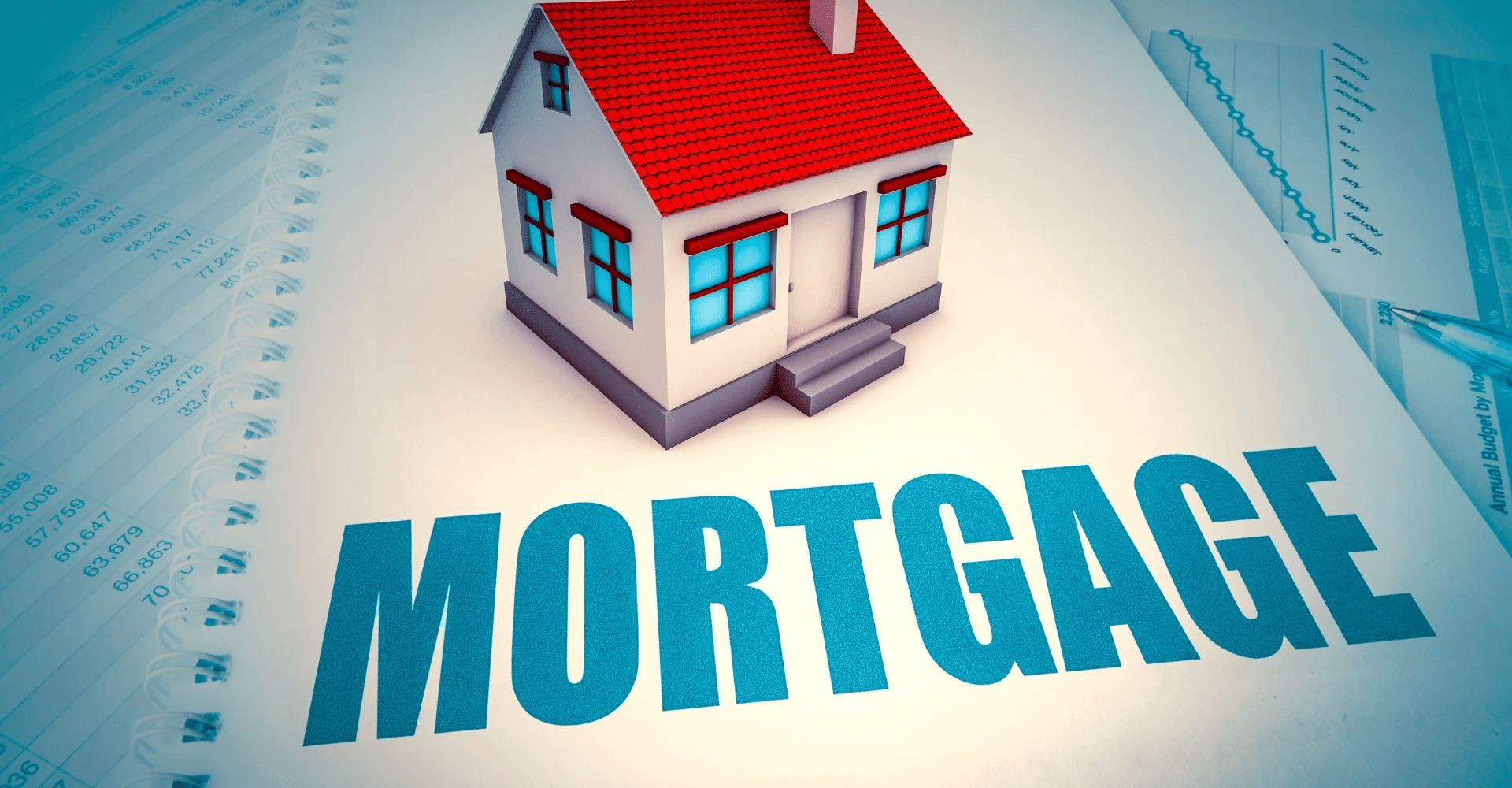Understanding Mortgages: How to Choose the Right One for You?
Getting a mortgage for the first time might be a daunting prospect. But don't worry; it's essential to understand everything about home loans or mortgages to make the best choice for you. Borrowing money to purchase a house and promising to repay it over time is the essence of a mortgage. If you want your house to be a haven of joy rather than worry getting the correct mortgage is crucial.
We'll talk about what you need to know if you're buying a home for the first time how to avoid common mistakes and how to look at different loan rates to find the best one. Whether buying your first home looking for a new one or even investing in property we've got you covered. We want you to feel good and confident about choosing the right mortgage.
Trusted10.io is here to help you through this journey. We know all about mortgages and want to share that knowledge with you. You will understand better how to get the right home loan by the end of this blog.
How to Get a Mortgage?
Getting a mortgage is a significant milestone on the road to homeownership. It may seem overwhelming but don't worry. We'll break it down into manageable steps.
What You Need to Get Started
What follows is a rundown of the requirements for a mortgage:
- Credit Score: In monetary terms this is like to a letter grade. It would help if you had a score of at least 620 for most loans but some loans like FHA loans can go as low as 580.
- Debt-to-Income Ratio (DTI): This is all about balancing how much you owe and how much you earn. Lenders like it when you owe less and make more which means you're more likely to repay the loan.
- Income: You don't need to make the big bucks but you do need to earn enough to cover the loan you're asking for.
- Employment: You can demonstrate to lenders that you can reliably repay their loans if you have a stable work.
- Down Payment: Consider this the upfront cash you pay for your home. You'll need at least 3% for conventional loans and about 3.5% for FHA loans.
Choosing the Right Mortgage for You
There are a variety of mortgages to choose from and they all provide different benefits:
- Conventional Mortgages: These are the standard loans that the government doesn't back. It is common to need a higher credit score and a bigger down payment.
- FHA Mortgages: Backed by the Federal Housing Administration these are great for first-timers because they're more forgiving with credit scores and down payments.
- VA Mortgages: This could be perfect for you if you're a veteran. The Veterans Affairs Department backs these loans and they often don't need a down payment.
- USDA Mortgages: Living in a rural area? This loan supported by the U.S. Department of Agriculture might help you get a home with no down payment.
The Steps to Getting Your Mortgage
Now let's walk through the process:
- Pre-approval: This is like getting a heads-up on how much you can borrow. It's super helpful for budgeting.
- Documentation: A few pieces of paperwork such as your pay stubs tax returns and bank statements will be required to demonstrate your ability to repay the loan.
- Loan Approval: The lender reviews everything you've submitted and decides if you get the loan and your interest rate.
- Closing: We have reached the last stage. After you've signed the papers paid the closing fees and received the keys to your new house you may move in!
What You'll Need to Provide
Here's a quick list of the documents you'll need during the application process:
- Proof of Income: Things like pay stubs and tax returns to show how much you make.
- Employment Verification: To prove you have a steady job.
- Credit Report: You can see your credit history and score right here.
- Down Payment: Your down payment has to have its origins verified.
- Property Information: Details about the home you're buying.
By understanding these steps and preparing your documents you'll be on your way to getting the right mortgage for your new home. Remember it's all about showing lenders you're a safe bet to lend money to. Happy house hunting!

First-time Homebuyer Mortgage
Buying your first home is exciting! But you might wonder "How can I afford it?" The good news is that particular home loans and programs are just for people buying their first home making it easier and more affordable.
Particular Home Loans for First-Time Buyers
- FHA Loans: These loans are friendly for people with little money saved or the best credit score. You only need a little down payment as low as 3.5% of the home price.
- VA Loans: A down payment may not be required for some loans if you or a relative has served in the military.
- USDA Loans: Would you want to live in a rural area? This loan could help you buy a home there without needing a down payment.
- Help from Your State or City: Your local government might have extra help for first-time buyers like you. They can help with your down payment or closing costs making it cheaper to get your home.
Help with Your Down Payment
Saving money for a down payment can be tricky but there are programs to help:
- Grants: This is like getting a gift to help pay for your home; you don't have to pay it back.
- Loans: Some programs lend you money for the down payment at a meager cost. If you stay in your house for a while you may not even have to pay it back.
- Matching Savings: Some programs will check the money you save increasing your down payment and helping you buy your home sooner.
Paying a Little Extra Each Month: Mortgage Insurance
If you don't pay much money upfront for your home you might need to pay a little extra monthly. In the event that you have difficulties in repaying your loan this protection is known as mortgage insurance. When making plans for your finances remember this.
Saving Money with Tax Breaks
You may reduce your taxable income by owning a home:
- Mortgage Interest: You can pay less tax by deducting the interest you pay on your home loan.
- First-Time Buyer Credits: Sometimes there are special tax breaks for first-time buyers making it easier to afford your home.
- Going Green: If you make your home more energy-efficient you might get extra tax breaks.
Buying your first home might seem like a lot to figure out. However they could be more affordable and accessible with these particular programs and loans. Remember there's help to make your dream of owning a home come true!
Mortgage Mistakes to Avoid
Navigating the path to securing a mortgage can be a complex journey with potential pitfalls. A smooth journey towards homeownership may be achieved by being aware of typical mortgage mistakes to avoid. Avoiding these mistakes may save you a lot of hassle and money.
- Shop Around: Don't Miss Out on Savings
The failure to compare mortgage rates is a typical blunder. It might seem easier to go with the first lender you meet but comparing rates from multiple lenders could save you thousands over the life of your loan. Think of it like shopping for a car or a phone; you would only buy the first one you see if you checked out the other options right?
- Know What You're Signing Up For
Jumping into a mortgage without fully understanding the terms and conditions is like diving into a pool without knowing how deep it is. Before you sign any paperwork make sure you fully grasp the loan's details including the length interest rate and fees. Feel free to voice any questions or issues you may have. It's better to ask many questions now than to have regrets later.
- Plan for the Future
The state of your finances is only one of many unpredictable aspects of life. When choosing a mortgage consider what might happen if your job situation changes or your income decreases. Picking a mortgage that you can still afford in those situations is vital to avoiding financial stress.
- The Power of Pre-Approval
Not getting pre-approved is a mistake that can cost you your dream home. Getting pre-approved might give you an advantage in negotiations and show sellers that you're serious about the deal. You may use it to narrow your property search to more reasonable places by setting a realistic budget.
- Check Your Credit Score
The mortgage application procedure is heavily reliant on your credit score which is analogous to your financial fingerprint. Loan conditions and interest rates may improve with a high score. Therefore check your credit report for errors before requesting for a mortgage.
- Save for Closing Costs
If you're buying a home you should know that closing costs may mount up fast. These costs cover things like appraisals inspections and legal fees. You should have a down payment and additional funds set up to pay for these expenses.
By keeping these tips in mind and avoiding these common mistakes you'll be in a much stronger position to secure a mortgage that suits your needs and budget. Remember some preparation and knowledge can go a long way in home buying.
Compare Mortgage Rates
When you're ready to buy a home or change your current home loan it's super important to look at different home loan rates also known as mortgage rates. A lot of money may be saved by finding the greatest offer.
What Makes Mortgage Rates Change?
Consider mortgage rates like the price of borrowing money to buy a home. Several things can make these prices go up or down:
- Credit Score: This is like a school report card for money habits. A better score can get you a lower price.
- Down Payment: What you pay for a home up front is called the down payment. Paying more at the start can make your borrowing price lower.
- Type of Loan: Some loans have prices that don't change while others can go up or down over time.
- Where You Live: Different places have different prices.
- Big Money Stuff: Things like what the government does with money or prices going up in general can change loan prices.
Tips for Getting a Good Deal:
You shouldn't settle for the first price that comes up. Here's how to get a better deal:
- Look Around: Check out prices from a few places.
- Make Your Credit Score Better: Even a slight improvement can help you get a lower price.
- Think About Different Loans: Some loans have better prices for you than others.
- More significant Down Payment: If you can pay more upfront to lower your borrowing price.
Why Looking at Prices is Important?
Taking the time to compare prices is smart because:
- Saves Money: Finding a lower price means paying less over time can save you lots of money.
- Better Deal: You might find a loan that's just right for you with good terms and a reasonable price.
- Feeling Good: Knowing you got a good deal can make you feel secure and happy with your choice.
By understanding what changes in loan prices and using online tools to compare you can find the best deal for your home loan. Remember that you may get a great deal if you look around!
Conclusion
We've discussed many important things to help you better understand home loans. We learned how to get a mortgage what to think about if you're buying a home for the first time how to ensure a reasonable loan rate and what mistakes you should try to avoid. With the correct finance buying your dream house might be less of a financial burden and more within your budget.
Buying a home is a big deal and it's okay if it initially seems scary. Some experts can help make it easier. Talking to a professional like a mortgage advisor can be a big help. When it comes to house loans they are experts and can tailor their recommendations to your specific needs. Don't be shy about asking for help; it can make a big difference.
And remember Trusted10.io is here to help you too. If you're having trouble locating the ideal loan we offer a wealth of information and resources to assist you. Return to our site whenever you are prepared to begin your search for a house loan or have any questions. We're excited to help you on your journey to owning your own home.

